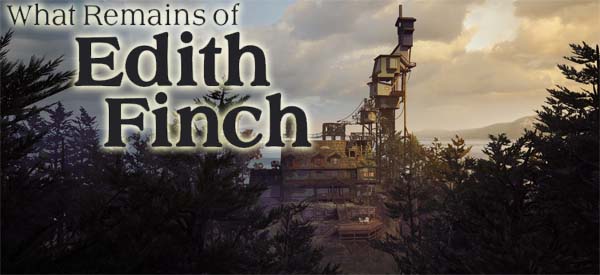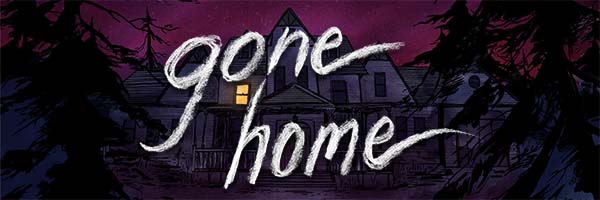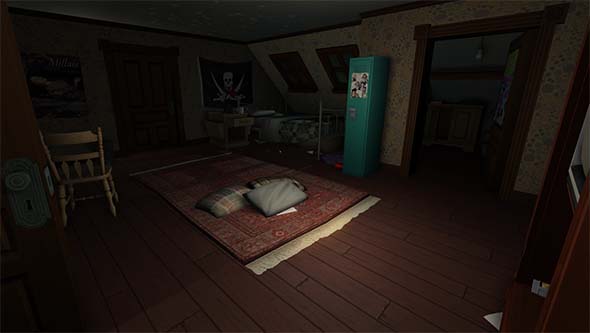I do not have particularly strong opinions one way or the other about the video game sub-genre known as "walking simulators" in general. I have strong opinions about some of the games that I've played within this genre, but I would not say that I either like or that I dislike "walking simulators" as a whole genre. Some work well and are good games. Others are un-engaging or lazy and didn't particularly work for me.
For example, I hated Dear Esther and Ether One. I was immensely disappointed in Amnesia: A Machine For Pigs, after having enjoyed The Dark Descent. But on the other side of the coin, I thoroughly adore Gone Home, Firewatch, and What Remains of Edith Finch.
Patrons had early access to the full video essay.
Are "Walking Sim" games?
So what is a "walking simulator"? Well, like with most things in pop culture, the definition will vary depending on who you ask. But I think most people would agree that a "walking simulator" can be accurately described as interactive entertainment that conveys a narrative almost exclusively through the exploration of an environment and the clues provided therein. You may notice that I used the term "interactive entertainment" as oppose to "video game". I did this in order to keep this discussion's definition as non-contentious as possible. One of the criticisms of walking simulators that I specifically wish to address is the idea that they are not video games, and such critics would immediately object to the use of the term "video game" in the definition. These experiences generally lack any of the violent conflict that is present in most video games, and the mechanics rarely go beyond navigating obstacles, solving puzzles, or managing a limited inventory.
While I am perfectly content to call walking simulators "video games", there are somewhat valid arguments for why the label might not be appropriate for such entertainment products. It could be argued that they are not video games because they lack conflict; they lack a traditional win state, fail state, or any stakes at all; and they lack mechanical depth or complex systems. I personally do not accept these arguments as disqualifying walking simulators from consideration as "video games". There are plenty of universally-accepted video games that also lack one, or even all three of those criteria.
Many games have lacked violence conflict, traditional win states, or complicated system mastery. [More]
33ddcfeb-42d4-4173-a671-208c4b4b2d96|0|.0
Tags:YouTube, walking simulator, horror, politics, Dear Esther, Silent Hill: Shattered Memories, Amnesia: the Dark Descent, Amnesia: a Machine for Pigs, Layers of Fear, _Observer, Blair Witch, Soma, Gone Home, What Remains of Edith Finch, Firewatch, Outer Wilds, Death Stranding, P.T., Silent Hills, PS5, haptic feedback

The Finch family is, as we are told, cursed. It's not a spoiler to say that every member of the family dies a tragic, premature death. The family tree in the sketchbook tells you as much at the start of the game.
We play, ostensibly, as 17-year-old Edith Finch, the last surviving member of the Finch family, but also an expecting mother. Her son will carry on the name and legacy of the family. She returns to her childhood home to learn the stories of all her cursed relatives, as she debates internally with whether to share these stories with her son, or to let the past (and its myriad tragedies) fade away and die.
The Finch family is cursed by tragedy.
The house itself, is a whimsical generational home in which each member of the family is given his or her own unique room. As more members of the family are born, new rooms are added onto the house, including a towering structure on the top that makes the house look almost like a castle. After losing both of her sons, Edith's mother began sealing off everyone's rooms so that Edith (and any future children) would not become aware of how the others died. But, each room has alternate ways in and out, including some secret doorways and tunnels.
Despite the whimsical, fantastical nature of the house, everything feels surprisingly real and lived-in. The house is cluttered with the paraphernalia of the family (since they were apparently also hoarders), and each room has a very distinct personality. Even the shared spaces that do not belong to any one individual still exhibit a sense of personality to them. This is a family that takes great pride in their history and the connectedness that they have towards one another.
The Finch home is a whimsical, generational house.
As she learns about these stories, Edith questions whether the family members should know about the stories of their relatives and the supposed curse? Or does that knowledge make tragedy a self-fulfilling prophecy? Should she share these stories with her unborn son, at the risk that the knowledge may cause him to also fall victim to the curse? Or is he cursed either way, and has a right to know it?... [More]
064c0f5a-6131-4678-9699-8286778e4d25|0|.0
Tags:What Remains of Edith Finch, Edith Finch, vignette, walking simulator, indie gaming, story, interactive, art, family, generational living, children, history, house, dramatic irony, destiny, fate, self-fulfilling prophecy, curse, surrealism, whimsy, Tim Burton, Gone Home

I'm very late to the Gone Home bandwagon. It's a game that has been available for well over a year and a half. I've had it sitting in my Steam library for quite some time, but only just now got around to playing it, since I've been busy with other games and projects.
The game has already received piles and piles of critical acclaim, awards, and accolades, and I can't imagine that I have anything new to add to this conversation. It was very hard to go into this game without a bias considering that I already knew a bit about how it would play out, and that it's received overwhelmingly positive praise. But now that I've played it, I can say that Gone Home deserves every bit of praise that it receives!

The inclusion of real family photos
adds to the sense of realism.
The premise of Gone Home is that the player assumes the role of Kaitlin Greenbriar, a young woman arriving at her family's new house for the first time after a year of university abroad. She finds the house empty. Her younger sister apparently got into a fight with her parents and has run away. The player must explore the house to discover clues as to what happened in the family, why Sam ran away, and where she is now.
To discover the details of the situation, the player must explore the house, reading hand-written notes, looking at journals, looking at photographs, and picking up cues from the environment in order to piece together the story. Each note has distinct hand-writing, and by the end of the game, you'll even start to recognize the handwritings and know who wrote a particular note before you even pick it up.
By observing the house, reading notes, and hearing journal voice-overs, the player begins to piece together the family's story. The primary narrative revolves around a budding romance between Kate's younger sister, Sam, and a friend at school, and the conflict that comes from her parents' disapproval of the relationship.
Anyone who has ever had a crush or been in love (which is almost all of us) should be able to recognize and relate to elements of Sam's story, even if your situation doesn't mirror hers. The early notes depicting the excitement of getting to know someone new and falling in love were particularly powerful. Reading about Sam being shy in approaching her crush, and then finally having the feeling reciprocated is heartwarming. And the eventual roadblocks in the relationship are then equally heartbreaking.

The game is loaded with personality that makes the characters more substantial and real.
This story is made even more powerful by the absolutely perfect voice-over narration ... [More]
fadcb722-019d-4c75-8f4a-464f7bf06dc1|3|3.7
Tags:Gone Home, Fullbright, Steve Gaynor, Chris Remo, PC, Steam, indie gaming, point and click, walking simulator, story, interactive, art, home, family, love, relationships, homosexual, affair
|

| 12 | | | | | | | 60 | | 11 | | | | | | | 55 | | 10 | | | | | | | 50 | | 09 | | | | | | | 45 | | 08 | | | | | | | 40 | | 07 | | | | | | | 35 | | 06 | | | | | | | 30 | | 05 | | | | | | | 25 | | 04 | | | | | | | 20 | | 03 | | | | | | | 15 | | 02 | | | | | | | 10 | | 01 | | | | | | | 05 |
|